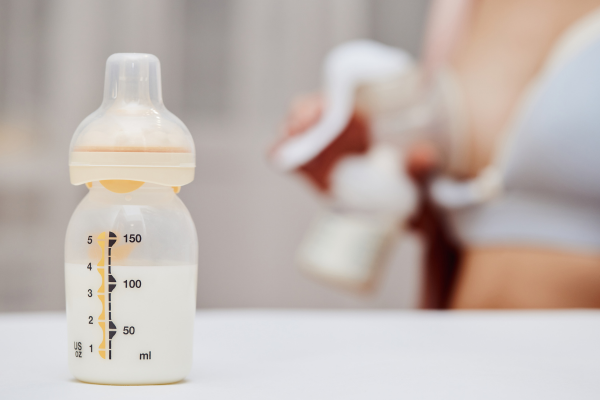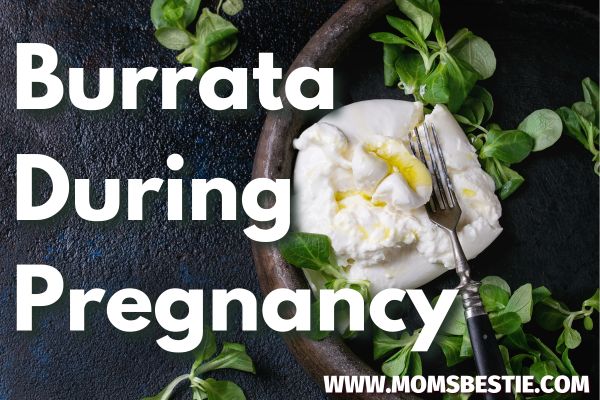Body Armor For Breastfeeding (My Pumping Experiment!)
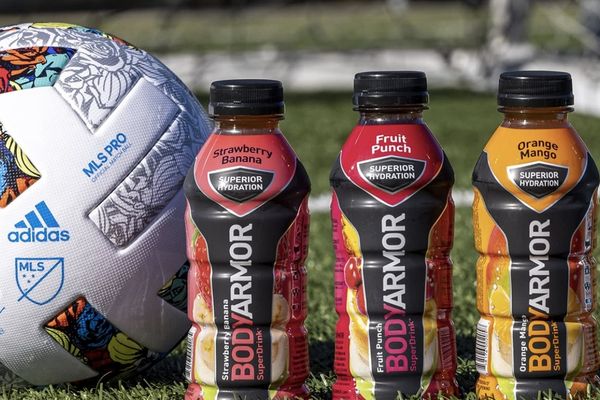
Hey there, fellow mom! If you’re like me, you’ve probably come across numerous pieces of advice and suggestions on enhancing your milk supply.
We explore all possibilities, from trying different lactation teas and cookies to following various dietary recommendations.
For years, moms have sought the holy grail of lactation aids, hoping to find that magic potion that effortlessly replenishes their milk supply.
And with its appealing flavors, hydrating qualities, and added nutritional benefits, Body Armor has caught the attention of breastfeeding moms across the globe.
But is there any truth to the claims? Can this popular sports drink truly boost milk supply, or is it simply another case of wishful thinking?
Some moms swear by it, claiming it has worked wonders for their lactation journey.
While there are stories of success, scientific evidence supporting the drink’s impact on milk production remains inconclusive.
So, let’s satisfy our curiosity and get to the bottom of this intriguing question: does Body Armor drink really boost milk supply?
What Is Body Armor?
Body Armor drink is a popular sports beverage that has gained attention among breastfeeding moms for its potential impact on milk supply.
It is a non-carbonated, electrolyte-rich drink designed to replenish and hydrate the body.
The drink contains a blend of various ingredients like coconut water, electrolytes, minerals, etc.
Check out the list of all ingredients HERE.
While the specific formulation may vary slightly across different flavors, Body Armor drink generally aims to support physical performance and overall well-being.
Does Body Armor Increase Milk Supply?
The potential of Body Armor drink to increase milk supply is a topic of debate and anecdotal evidence.
Some breastfeeding moms claim that consuming Body Armor drink has positively affected their milk production, but there is currently no scientific evidence to definitively prove its efficacy as a milk-boosting aid.
But it may have indirect effects on lactation.
Maintaining an adequate milk supply is primarily influenced by factors such as frequent breastfeeding or pumping, proper hydration, a well-balanced diet, and adequate rest.
Electrolytes play a vital role in various physiological processes, including the production of breast milk.
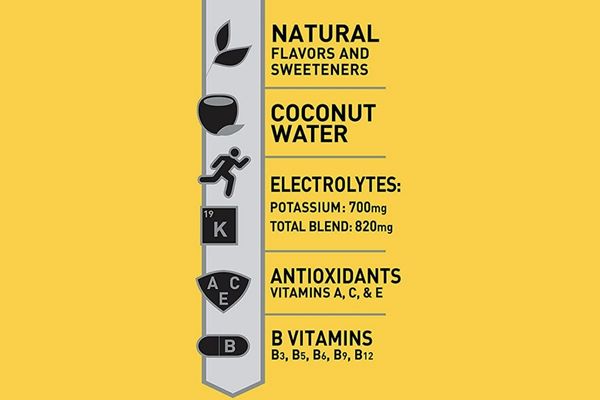
Coconut water concentrate, known for its hydrating properties, is one of the key ingredients in the Body Armor drink.
It is known for its natural electrolyte content, including potassium, which helps maintain fluid balance in the body.
By replenishing electrolytes and supporting fluid balance, coconut water may indirectly contribute to supporting the milk supply.
The Body Armor drink also contains Magnesium, which is an essential mineral that plays a crucial role in various bodily functions, including lactation.
It is involved in muscle relaxation and contraction, including the muscles surrounding the milk ducts.
Optimal muscle function is essential for efficient milk removal during breastfeeding, which can help stimulate further milk production.
Hormones, such as prolactin and oxytocin, are crucial for milk production and the let-down reflex.
Adequate magnesium levels may support the proper functioning of these hormones.
It also helps in the absorption of Calcium, which is important for milk production and plays a role in the composition and quantity of breast milk.
Body Armor Vs Body Armor Lyte – Which Is Good For You?
Both Body Armor and Body Armor Lyte have the same ingredients which indirectly help in increasing milk production like coconut water, minerals, and electrolytes.
When comparing, one important factor to consider is the sugar content.
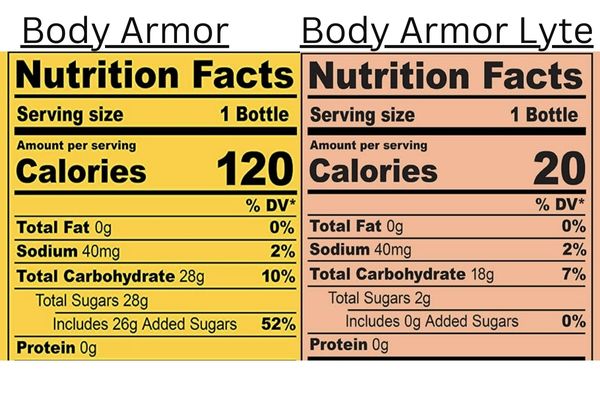
Excess sugar intake can have negative effects on your and your baby’s health.
Consuming high amounts of added sugars regularly may contribute to weight gain, increased risk of chronic diseases like diabetes and heart disease, and dental issues.
Body Armor, while providing hydration and certain nutrients, contains a moderate amount of added sugars.
On the other hand, Body Armor Lyte is a lower-sugar alternative.
It offers similar hydration benefits with reduced sugar content, making it a potentially better option for those concerned about their sugar intake.
Results Of My Experiment
Picture this: you’re standing in the grocery store aisle, sleep-deprived and sporting your best “mom bun,” desperately searching for that magical potion to make your milk flow like a gushing fountain.
And there it is, shining on the shelf, promising to be the answer to your breastfeeding prayers – Body Armor drink!
Well, being a curious and tired mom, I couldn’t resist giving it a try. I mean, who wouldn’t want a drink that turns you into a milk-making machine, right?
So, armed with my water bottle and a bit of doubt, I decided to give it a go.
But here’s the kicker- the changes I noticed while chugging down the Body Armor drink were not exactly what I expected.
It turns out, my thirsty body was simply celebrating the influx of liquid, rather than the magical milk-boosting properties. *facepalm*
I only saw any changes when I was seriously dehydrated!
So, Body Armor may not be the magic potion for boosting milk supply, but it did teach me an important lesson about staying hydrated.
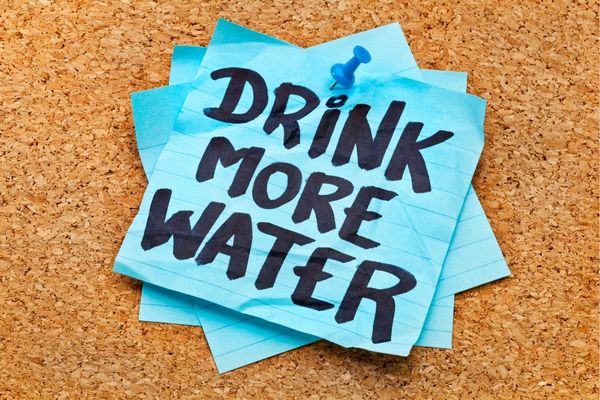
And hey, every little reminder helps when you’re on this crazy motherhood journey, don’t you think?
Natural Alternatives To Body Armor To Increase Milk Supply
Water
The simplest and most readily available option is good old H2O, the ultimate hydrator.
It’s easily accessible and essential for maintaining overall hydration levels.
Drinking an adequate amount of water throughout the day helps keep your body hydrated, which in turn supports milk production.
Keep a water bottle handy and sip on water regularly to ensure you stay hydrated.
Check out the Coolest Water Tumblers Here
Infused Water
If you find plain water boring, infused water can add a burst of flavor and make hydration more enjoyable.
You can create infused water by adding slices of fruits, such as lemon, cucumber, berries, or herbs like mint or basil, to your water.
The infused flavors can make drinking water more enticing and encourage you to drink more throughout the day, supporting hydration and milk production.
Coconut Water
If you’re looking for a flavorful and hydrating option, coconut water is worth considering.
It is a natural source of electrolytes, particularly potassium, which helps maintain fluid balance in the body.
Hydration is essential for milk production, and coconut water can provide a refreshing alternative to plain water.
Look for brands that offer pure coconut water without added sugars or artificial flavors.
Herbal Teas
Certain herbal teas have been traditionally used to support milk supply.
For example, fennel, fenugreek, and blessed thistle are known herbs that may have lactation-promoting properties.
These teas can be enjoyed warm or cold, providing hydration along with potential benefits for milk production.
It’s important to consult with a healthcare professional or lactation consultant before consuming herbal teas, as they can have individual effects and interactions.
To Sum It Up
When it comes to increasing milk supply, it’s important to approach the topic with a balanced perspective.
Every breastfeeding journey is unique, and a holistic approach that includes proper nutrition, rest, and self-care is vital for maintaining a healthy milk supply.
While products like Body Armor drink may be enticing with their promises, the scientific evidence for their direct effect on milk supply is limited.
Staying hydrated is crucial for lactating mothers, and ensuring an adequate fluid intake is key.
Water remains the simplest and most accessible option for maintaining hydration levels, which supports milk production.
Also Read: Will Ceiling Fan Make Newborn Sick?
Disclaimer!!
The information provided in this article is for educational purposes only and should not be considered as medical advice.
Every individual’s breastfeeding experience and milk supply may vary, and it is important to consult with a healthcare professional or lactation consultant for personalized guidance and support.
While efforts have been made to ensure the accuracy and reliability of the information presented, the author and the website are not liable for any errors or omissions or for any consequences arising from the use of the information provided.


